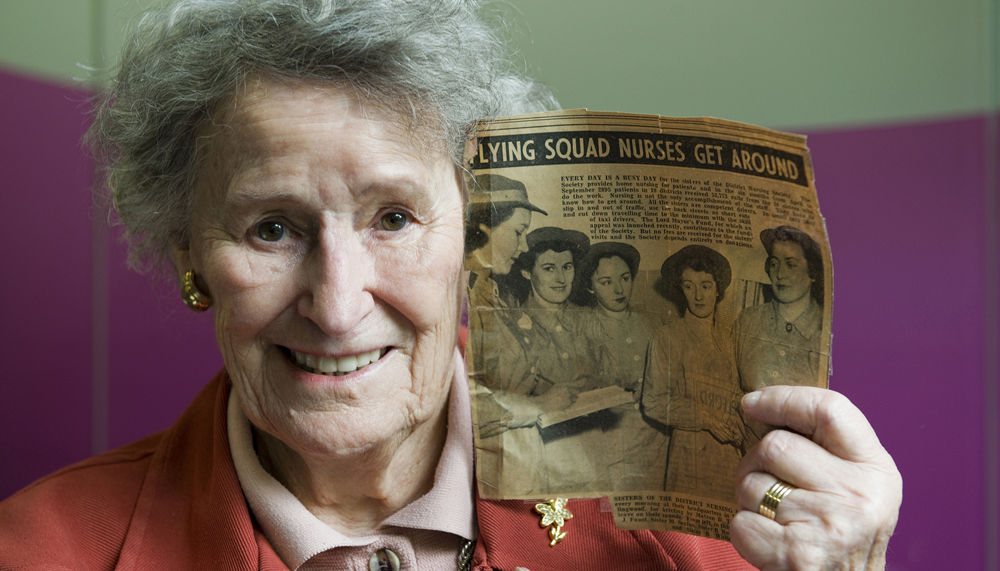A former district nurse reflects on how little the role has changed as today’s generation looks after her.
Maureen Lockie began her career as a district nurse more than 60 years ago and now, at the age of 93, is being cared for by the very company she worked for so long ago.
Lockie joined what was at the time called the Melbourne District Nursing Society in 1952 and worked in the Victoria Parade, Collingwood area.
She says the main reason she became a district nurse – aside from the good hours – had to do with personality, as the work is done within a person’s home.
“You really felt you were helping people at the level of the street,” she says. “You went into their home and a lot of them lived on their own and they looked forward to the visit.”
As she was interested in the whole person, Lockie says she felt as though she was part of a patient’s life in ways other than nursing.
She says district nursing is very different from other fields due to this personal nature. “Rather than someone in a bed and hospital you get to see them in their own environment,” she says, adding it’s important to relate to people.
“It’s rewarding because you have to make a decision how sick that person is; someone can have a turn when you’re there. It’s not all plain sailing. It teaches you to be responsible.”
Although the role has its challenges, as a full range of illnesses are encountered, she says it was great experience – even if some patients would offer her tripe. In fact, she jokes that trying to get out of a patient’s house when they wanted to keep her for lunch was one of the hardest things about the job.
Lockie is now in need of the very care she used to give, and she says it’s nice to have the company she worked for, now called the Royal District Nursing Service, helping to look after her.
“It’s just a wonderful feeling,” she says. “I’m glad I’ve been a district nurse.”
She enjoys the visits she gets from the nurses. “They’re very, very efficient and pleasant. I couldn’t complain, I must admit. I might be biased, but I don’t think I’m biased, she adds with a laugh.”
Lockie makes sure to tell the nurses she was a district nurse up front, and spends the time chatting with the new generation. She says they are the same as the nurses she worked with. “It’s what I would expect to see; somebody who cared about people.”
Seeing the nurses go in and attend to the patients, all the while having a chat, reminds her of the way she would go about the role. She explains that it hasn’t changed because human beings are the same.
“They get the same diseases now and the same cuts and bruises, so really, district nursing is much what I did. I wouldn’t say that people have got any more stresses or less stresses, life’s much the same because no matter how much society thinks it proceeds, human beings have the same feelings.”
Being cared for by a district nurse has made Lockie even happier that she was one. “I appreciate them coming,” she says. “I can see from the other perspective now, that when you’re on your own you think: ‘Oh the nurse is coming today.’ I can appreciate that very much.”
Had she never entered district nursing, she says, she would’ve missed out.
“I would suggest a lot of other people have a go,” she says. And whilst reflecting on the job now after her recent experiences, she wishes she would have stayed in it even longer, saying she would still be doing it today if possible.
Do you have an idea for a story?Email [email protected]
 Aged Care Insite Australia's number one aged care news source
Aged Care Insite Australia's number one aged care news source

